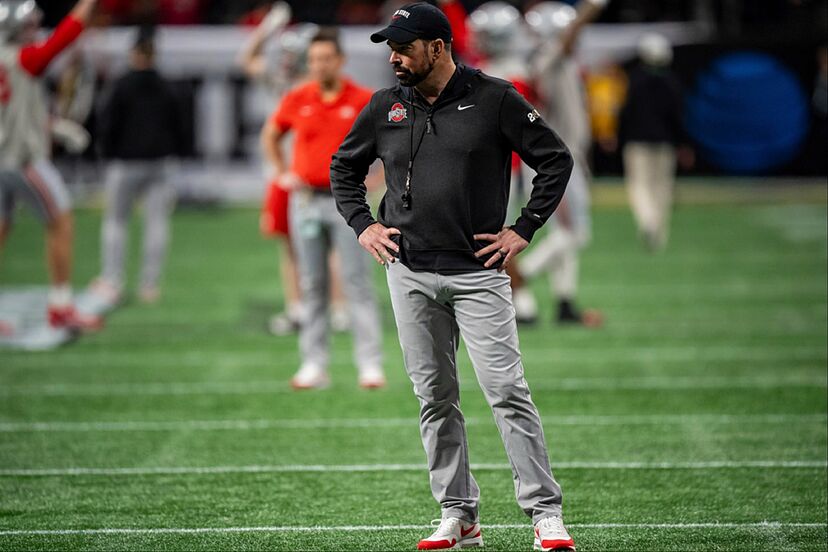Ohio State head coach Ryan Day is known for his measured approach to coaching and media interactions. However, he recently made an exception when discussing the legacy of Chip Kelly.
In a rare moment of blunt reflection, Day shared his perspective on Kelly’s influence, acknowledging his role in transforming college football’s offensive game.
Kelly’s impact on the sport, particularly through his up-tempo, no-huddle spread offense at Oregon, reshaped how many programs structure their attacks.
His system revolutionized offensive play at the college level and even found its way into the NFL, though with mixed results. Despite his reputation as an innovator, Kelly’s coaching style has been scrutinized, especially following his NFL tenure and recent challenges at UCLA.
During a press conference, Day was asked about Kelly’s influence on modern offenses. His response was straightforward, recognizing Kelly’s contributions while highlighting how the game has evolved beyond his early innovations. “Chip Kelly changed the game, no question about that,” Day said. “But it’s fair to say the game has evolved, and not all of his concepts still carry the same weight they used to.”
Day’s comments stood out for their directness. While he credited Kelly’s impact, he also suggested that some of his once-groundbreaking strategies are no longer as effective in today’s game.
At Ohio State, Day has built a high-powered offense that blends tempo with a dynamic passing attack, incorporating elements that go beyond Kelly’s spread-heavy system.
His approach relies on a more balanced mix of run-pass options (RPOs) and deep passing, creating an unpredictable offense that challenges modern defenses in ways Kelly’s original scheme may not.
Despite his frank tone, Day’s remarks weren’t entirely dismissive. Instead, he emphasized the need for continual adaptation in college football. Kelly’s once-revolutionary no-huddle offense set a new standard, but the game has continued to progress. Day’s success at Ohio State reflects the necessity for coaches to evolve and refine their strategies to stay competitive.
The timing of Day’s comments is notable, as Ohio State remains a consistent playoff contender under his leadership, while Kelly’s UCLA program is still striving for national relevance. Though Kelly’s contributions to the game are undeniable, Day’s assessment underscores how the coaching landscape has shifted, with new offensive philosophies taking center stage.
As one of college football’s brightest minds, Day’s perspective highlights the sport’s constant evolution. While Kelly’s legacy as an innovator remains intact, Day’s remarks serve as a reminder that staying ahead in the modern game requires continual adaptation. Today’s leading coaches—including Day himself—are shaping the next phase of offensive football, building on past innovations while pushing the game forward.













